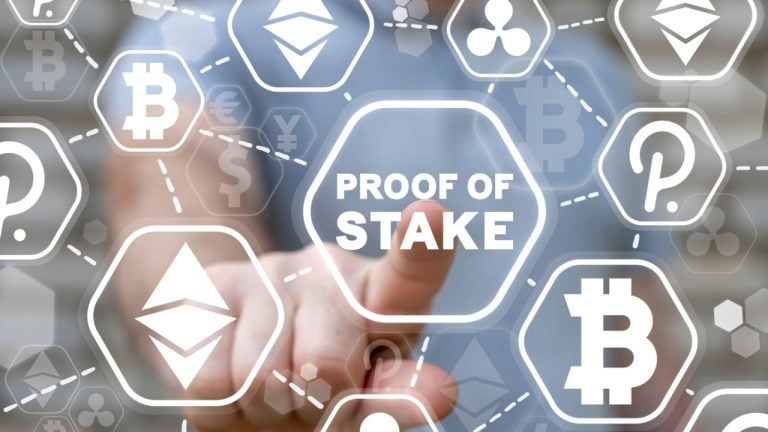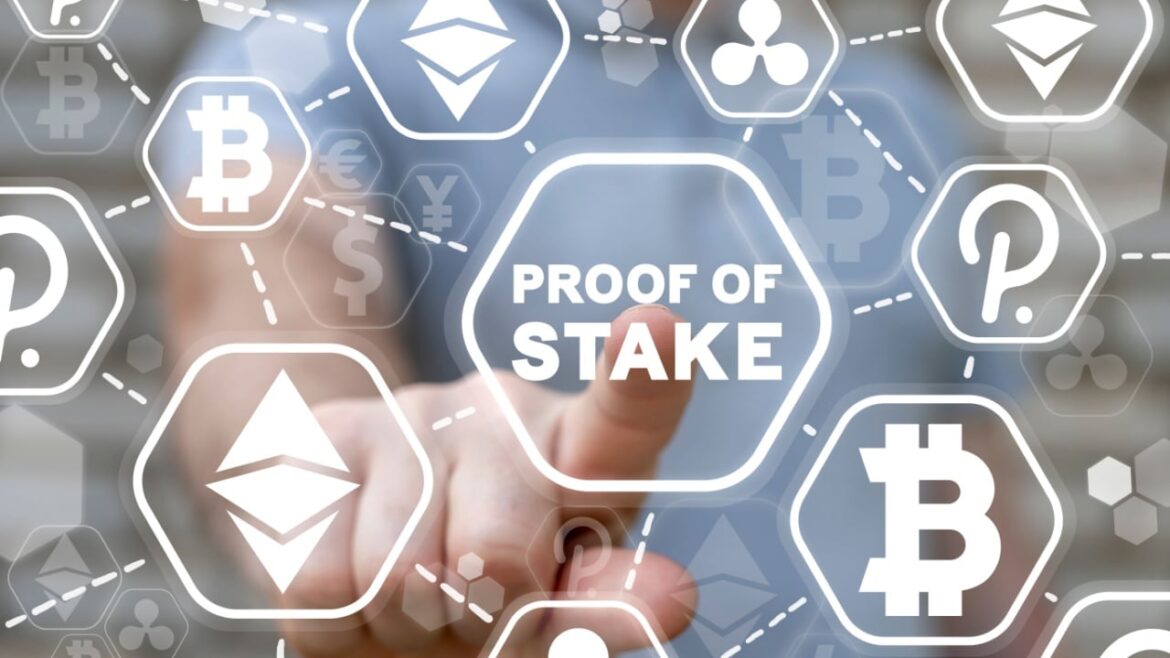 Consensys has told the U.S. Securities and Exchange Commission that Ethereum’s proof of stake implementation “meets and even exceeds the security of Bitcoin’s Proof of Work (PoW).” The blockchain software company said the commission should recognize the advanced safeguards inherent in Ethereum’s design which exceed the “security and resilience safeguards underlying bitcoin-based exchange-traded products.” The […]
Consensys has told the U.S. Securities and Exchange Commission that Ethereum’s proof of stake implementation “meets and even exceeds the security of Bitcoin’s Proof of Work (PoW).” The blockchain software company said the commission should recognize the advanced safeguards inherent in Ethereum’s design which exceed the “security and resilience safeguards underlying bitcoin-based exchange-traded products.” The […]
Source link
ConsenSys
ConsenSys Designs New Smart Routing Mechanism to Streamline MetaMask Transactions
The new routing tech is developed by the ConsenSys-backed Special Mechanism Group (SMG) to enable smart swaps on the MetaMask wallet.
ConsenSys Inc, a private blockchain software technology company that has focused on building web3 infrastructure, is on the verge of releasing a game-changer feature for the MetaMask wallet. According to a report by CoinDesk, MetaMask has been testing a transaction routing feature to enable users to get the best possible connection for token swaps. The new routing tech has been developed by web3 developers from the Special Mechanism Group (SMG), which was purchased by ConsenSys last year.
Notably, the new routing tech is meant to protect users from different challenges associated with token swaps including bot front-running through maximal extractable value (MEV). As a result, the new transaction routing tech can be used by other decentralized financial (DeFi) platforms to ensure every user accesses smart swaps with the best prices once the company releases them for public use.
“We are currently focused on ensuring we have built the best system of its kind in terms of safety, features, performance, and control. Once we are satisfied, everyone in the industry will have a chance to use it for themselves, and will be free to use it how they want,” Jason Linehan, director at Special Mechanisms Group (SMG), noted.
According to Linehan, the new routing technology is not centralized, thus users should not worry about a single entity controlling all the transactions in a given mempool. Furthermore, the new routing tech is intended to be an opt-in feature to give users flexibility in their transactions.
“We have taken such a unique approach with this technology that it doesn’t entirely make sense to call it a private mempool anymore. People tend to think it’s a public mempool if every node sees every message, and a private mempool if only some of the nodes see every message, but why should any node see every message in the first place?” Linehan added.
MetaMask and the Web3 Industry
MetaMask has grown into a mature ecosystem supporting the mass adoption of the web3 industry and digital assets. As of this report, MetaMask boasted more than 100 million global users due to its battle-tested self-custodial approach. MetaMask and other self-custodial wallets like Binance Holdings-backed Trust Wallet gained global recognition mostly after the implosion of FTX and Alameda Research in late 2022.
As a result, existing self-custodial wallets have been working on improving their user experience features to attract more retail investors. Furthermore, secure crypto wallets are the gateway to the vast web3 industry including non-fungible tokens (NFTs), metaverse, gamify, and real-world assets (RWA) tokenization among others.
Market Picture
The cryptocurrency industry is gradually entering the macro bull cycle that will be triggered at an exponential pace by the upcoming Bitcoin halving in April. Additionally, the recent approval of several spot Bitcoin ETFs in the United States has increased investors’ confidence in the future of digital assets.
next
Blockchain News, Cryptocurrency News, News
You have successfully joined our subscriber list.
Joseph Lubin, Consensys sued by early employees over 2020 restructuring

Ethereum (ETH) co-founder and Consensys CEO Joseph Lubin faces a lawsuit from 27 early employees who allege Lubin broke contractual agreements regarding equity shares.
According to the lawsuit, filed in the New York Supreme Court, Lubin promised employees “hub equity” in ConsenSys (as it was styled at the time), meaning shares in the central ConsenSys entity that would own the various products and subsidiaries.
This equity was offered as compensation for joining the company in its early stages at below-market salaries. Lubin stated the employees would be “joint stakeholders” and share in the potential upside of ConsenSys’s growth.
However, in August 2020, ConsenSys underwent a restructuring whereby the core assets, including MetaMask, Infura, and Codefi, were transferred to a new Delaware entity, ConsenSys Software Inc. (CSI), leaving the original Swiss entity ConsenSys AG holding less valuable assets.
Lubin emerged with a 52.5% stake in CSI, while most early employees were not offered shares. The employees allege this was a breach of contract regarding the promised “hub equity.”
The filing claims the asset transfer was executed without notice, shareholder vote, or offering employees the chance to participate. It alleges the valuation was manipulated to benefit Lubin’s personal interests.
It further claims Lubin misled employees about their position, rights, and the company’s plans. The employees are seeking damages for lost upside in ConsenSys’s growth, which they say robbed them of returns they were promised for their early risk-taking and contributions.
The complaint, filed with the New York Supreme Court, demands a jury trial and seeks “damages in amount to be determined at trial, including, but not limited to, Plaintiff’s expectation damages, disgorgment, and Plaintiff’s damages suffered as a result of Lubin’s [et. al.’s] actions; and… granting Plaintiffs such other and further relief as the Court may deem just and proper.”
Lubin has not yet filed a response to the lawsuit.
The post Joseph Lubin, Consensys sued by early employees over 2020 restructuring appeared first on CryptoSlate.
As malicious actors continue their attempts to steal users’ crypto assets, wallet provider MetaMask has developed a way to give users more insights into the transactions and interactions within the application.
In an interview with Cointelegraph, Francesco Andreoli, developer community head at ConsenSys, spoke about ensuring that the recently released MetaMask Snaps is secure for users. The executive highlighted the importance of consent and ensuring that users know each step of their journey across various chains and decentralized applications.

As a wallet containing various users’ crypto assets, the security of MetaMask Snaps could be a concern for users before trying out the new feature. However, Andreoli noted that user consent is one of its main priorities, and it has designed Snaps to provide full transparency around how each Snap interacts with the MetaMask wallet extension.
He said the new update shows users more data points to give them insights into their transactions: “So for security, one big category of our allow list is transaction insights. Basically, what is happening with transaction insights is you really get more data points on what the extension does today.”
Related: MetaMask Snaps to let users interact with Solana DApps through Solflare
In his keynote presentation, Andreoli also demonstrated how one Snap called Wallet Guard can help protect users from malicious transactions. The executive further explained to Cointelegraph that before signing and approving transactions, users would be shown various information about what they are about to perform:
“Basically, what is happening is that before you’re signing and approving a transaction, you will have different data points. Like if you are interacting with a malicious contract or have a specific interaction. This happens before you’re actually approving the transaction.”
He stressed users would be “fully conscious” of what is happening. According to Andreoli, this is a function to which it gave added attention as it developed MetaMask Snaps.
Magazine: Joe Lubin: The truth about ETH founders split and ‘Crypto Google’
Ethereum’s proto-danksharding to make rollups 10x cheaper — Consensys zkEVM Linea head

Zero-knowledge (ZK) proof solutions have proved critical in helping scale the Ethereum ecosystem, but proto-danksharding is expected to drastically reduce the cost of rollups, according to Consensys’ zkEVM Linea head Nicolas Liochon.
Speaking exclusively to Cointelegraph Magazine editor Andrew Fenton during Korea Blockchain Week, Liochon estimated that proto-danksharding could further reduce rollup costs by 10 times.
Proto-danksharding, also known by its Ethereum Improvement Proposal (EIP) identifier EIP-4844, is aimed at reducing the cost of rollups, which typically batch transactions and data off-chain and submit computational proof to the Ethereum blockchain.
The Ethereum Foundation has yet to nail down an expected launch date for proto-danksharding, but development and testing are still ongoing.
As Liochon explained, Linea delivers 15 times cheaper transactions compared to those made on Ethereum’s layer 1, but rollups are still limited by the fact that transactions are posted in call data in Ethereum blocks.
According to Ethereum’s documentation, rollups are still expensive in terms of their potential because call data is processed by all Ethereum nodes and the data is stored on-chain indefinitely despite the fact that the data only needs to be available for a short period of time.
EIP-4844 will introduce data blocks that can be sent and attached to blocks. The data stored in blocks is not accessible to the Ethereum Virtual Machine and will be deleted after a certain time period, which is touted to drastically reduce transaction costs.
“In reality, the cost of rollups is down to data availability. We are writing all the data to layer 1, which is why we have exactly the same security. But it’s expensive; it represents 95% of the cost.”
Liochon said that Linea’s prover, which essentially handles the off-chain computation that verifies, bundles, and then creates a cryptographic proof of the combined transactions, only represents a fifth of the cost.
This highlights the major hurdle in making ZK-rollups the go-to scaling solution for the Ethereum ecosystem as opposed to other solutions like Optimistic Rollups.
Liochon also said that Linea aims to be a general-purpose ZK-rollup that will be used for a variety of decentralized applications and solutions within the Ethereum ecosystem.
“We are a generic rollup. We don’t want to have a specific use case or specific domain. It’s quite important to support all types of applications, including DeFi, gaming and social.”
As Cointelegraph previously reported, Consensys completed the launch of Linea in August 2023, having onboarding over 150 partners and bridging more than $26 million in Ether (ETH).
Magazine: Here’s how Ethereum’s ZK-rollups can become interoperable
A global survey featuring respondents from 15 countries indicates that Africa’s largest economy, Nigeria, has the most cryptocurrency-aware population in the world.
ConsenSys and YouGov released the findings from the global Web3 perception survey, which sought to provide both macro and regional insights into the perception of different countries toward cryptocurrencies and the broader Web3 ecosystem.
A key takeaway from the data obtained from the qualitative survey was that two African nations rank highest for awareness of cryptocurrencies. According to the survey, 99% of Nigerians and 98% of South Africans are more knowledgeable about Web3 than people in major economies like the United Kingdom, the United States, Japan and Germany.

The survey included 15,158 individuals living in 15 countries, aged between 18 and 65. Of the Nigerian respondents, 70% said they understood the fundamental concepts of blockchain technology.
Nigeria’s knowledge of the cryptocurrency sector is mirrored by crypto ownership among its population. Of the 1,001 respondents from Nigeria, 76% either held or previously held cryptocurrencies. Bitcoin (BTC) and Ether (ETH) were the most commonly owned, while BNB (BNB) and Dogecoin (DOGE) ranked higher than the world’s largest stablecoin Tether (USDT).
Related: Nigeria to tax crypto, digital assets 10% on capital gains — Experts react
90% of the Nigerian respondents expressed interest in investing in cryptocurrencies in the next year, while 65% noted that cryptocurrency offered a means to hedge against hyperinflation and monetary devaluation.
Considering that the Central Bank of Nigeria cut ties between cryptocurrency exchanges and firms and local banks in February 2021, 50% of respondents indicated that regulators should create laws that encourage participation while protecting investors.

ConsenSys has published data and insights relating to all 15 surveyed countries. Of United States respondents, 95% said they were aware of crypto, while 42% had heard of the sector but lacked a clear understanding. Only half of the American respondents indicated that they own or previously owned cryptocurrencies.
Collect this article as an NFT to preserve this moment in history and show your support for independent journalism in the crypto space.
Magazine: How to protect your crypto in a volatile market: Bitcoin OGs and experts weigh in






